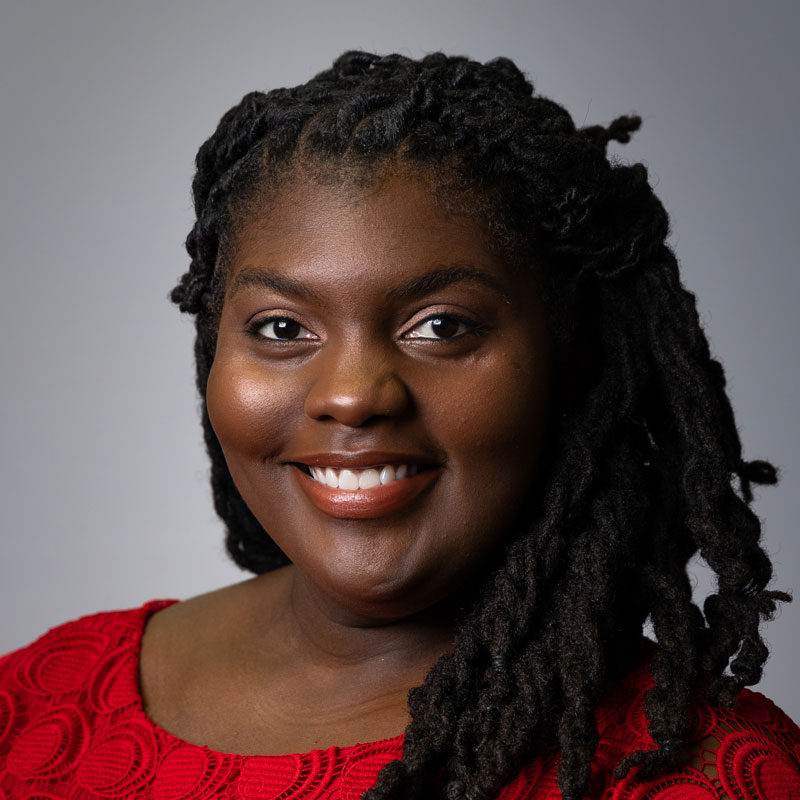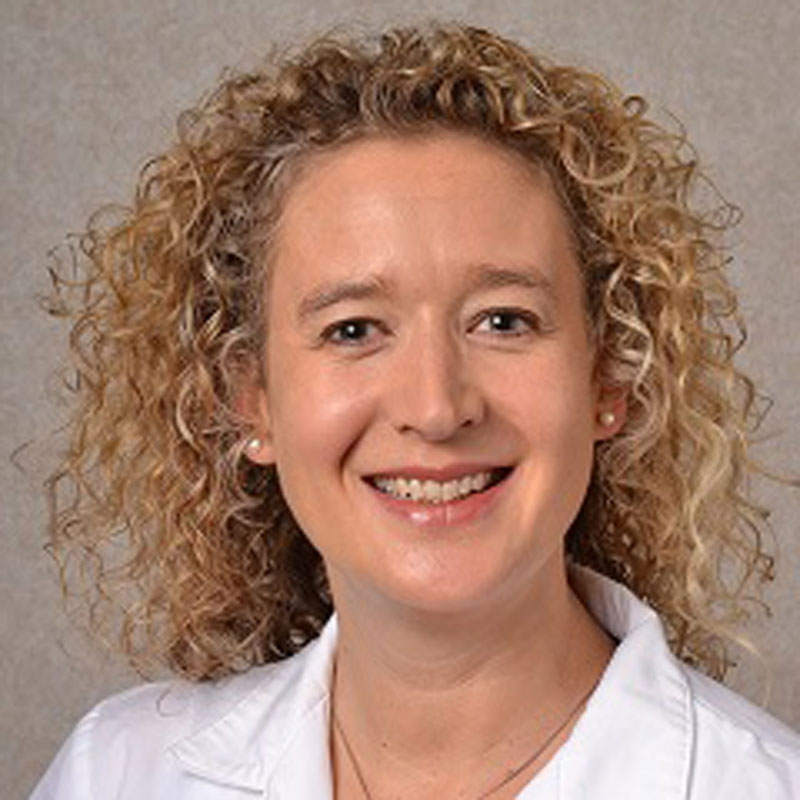
Diane Von Ah
Solving cancer care puzzles
by Victoria Ellwood
Diane Von Ah, PhD, RN, FAAN, has an illustrious background in innovative cancer research and a clear vision for the future. That, combined with solid midwestern roots and a family love of sports, should help her fit right in at Ohio State and the College of Nursing.
Von Ah was recently named distinguished professor of cancer research and director of cancer research at the College of Nursing. Her research focuses on cancer survivors, including cancer survivorship needs and the often-lingering symptoms that remain, such as bewildering cognitive issues that interfere with patients’ daily lives.
Drawing her to The Ohio State University are the reputations of the College of Nursing, The Ohio State University Comprehensive Cancer Center – Arthur G. James Cancer Hospital and Richard J. Solove Research Institute (OSUCCC – James), and the university itself. “Obviously, the college is renowned in relation to the research conducted and the stature of the programs it offers,” she said. “Seeing the great things going on in the college is very attractive, and specifically, the work being undertaken in cancer research, especially with the proximity of The James.”
She says, “The opportunities here are immense.”
Raised in Iowa, Von Ah completed bachelor and master’s degrees in nursing at the University of Iowa and earned her PhD at the University of Alabama-Birmingham. After completing post-doctoral studies at Indiana University, she stayed at IU, where she most recently served as professor and associate dean of academic operations. Von Ah says she is looking forward to continuing her research at Ohio State.
“Most of my work focuses on the late and long-term symptoms after cancer and cancer treatment. These symptoms appear or continue to occur after treatment has been completed and at a time in which survivors thought things should have returned to normal, but have not,” she explains. “In addition to fatigue, which many people have come to expect, there is an impact on cognitive function or cognitive ability that occurs in a sub-set of survivors.”
They often described these cognitive symptoms as difficulty concentrating, forgetfulness and difficulty completing simple routine tasks. These concerns are often referred to as “chemobrain” or “chemofog,” but may occur in more survivors than just those who had chemotherapy. The cognitive concerns can be detected on neuropsychological performance tests.
These cognitive issues may impact the individuals’ social engagements, work ability, productivity and family responsibilities, ultimately leading to poorer quality of life. Von Ah has dedicated her research to understanding more about this often-understudied indication.
“We need to be looking for efficacious treatments as this is a common, bothersome and potentially debilitating concern that affects a sub-set of cancer survivors and can be especially disruptive to their lives and the lives of their families,” she said.
Collaborating with other researchers, Von Ah studied breast cancer survivors and found that many of them dealt with significant deficits in memory and ability to process information. To address this problem, she has used a cognitive rehabilitative approach in clinical trials, focusing on providing a computerized cognitive or “brain training” program (online exercises believed to improve neural plasticity and neural networks).
Findings from her clinical trials have demonstrated some improvement not only in cognitive abilities, but also in enhancing the individual’s work ability and quality of life.
For next steps, Von Ah hopes to build upon these findings and develop a national protocol that could be tested locally at OSUCCC – James and in a larger national study with a more diverse set of survivors in both urban and rural settings.
While work continues on her own research, Von Ah sees big things on the horizon for the College of Nursing.
“The goal is to leverage the interdisciplinary experts from the world-renowned James Cancer Hospital with the work going on in the College of Nursing, and ultimately position the college as a nationally known center in cancer research and care,” she explained. “I plan to bring my experience and expertise in mentoring the next generation of pre- and post-doctoral fellows, research scientists and junior faculty to continue the emphasis on symptom science, self-management and symptom management for cancer survivors and their families.”
Von Ah and her husband, who recently retired from the military as a judge advocate general, are looking forward to this next adventure. Their three children have all “launched,” she said, and are either in college or graduated.
“We’re excited for our next chapter, and the welcome we’ve received has been amazing. Everyone has been so warm and so inviting,” she said. “We are a sports-minded family and love the college football atmosphere. We also love soccer, and look forward to taking advantage of all the city has to offer.
“We are happy to be joining Buckeye Nation.”
In this issue
- Diane Von Ah: Solving Cancer Care Puzzles
- Faye Wattleton: Committed to Women's Health
- Amanda Parker: Finding the Light Within
- Publications with Passion
- New Grants Roundup
- Building Update
- Advancing EBP: Clinicians Dare to Dream
- Bridge Care: Denise Williams
- Student Mental Health Initiatives
- Student Life: Back to Campus
- Health Equity Scholars
- Young Alumni Blog
- Homecoming
- Connie Gallaher: Paying it Forward
- Virtual Trails
Cancer research at the College of Nursing
Research at the College of Nursing plays a central role not only in improving healthcare but also in preparing researchers – from undergraduate students and PhD candidates to faculty researchers and global partners – to help transform health outcomes.
“Having a robust program of cancer research is important,” said Mary Beth Happ, PhD, RN, FAAN, FGSA, distinguished professor of critical care research and senior associate dean for research and innovation. “While we have made great scientific gains in the treatment of cancer, cancer remains a very significant health threat. It is a disease of aging and continues to be a relevant threat to the health and well-being of persons and families. It’s important to study issues of symptom management, treatment management, and adherence as well as health disparity and chronic health and recovery for cancer patients.”
Here is a sampling of some innovative cancer research efforts currently underway in the college:

Todd Monroe, PhD, RN-BC, FNAP, FGSA, FAAN
Monroe’s research – funded by a $5 million, five-year grant from the National Institutes of Health’s National Institute on Aging – centers on pain sensitivity in cancer patients who also have Alzheimer’s Disease. The study measures patients’ pain sensitivity and aims to benefit a growing population who are at risk from suffering from pain that may go undetected.

Timiya Nolan, PhD, APRN-CNP, ANP-BC
Nolan’s research centers on adapting and testing a targeted quality-of-life intervention among young African-American breast cancer survivors, and understanding cardiovascular disease risk among African-American men and women. Her work has been funded by the National Cancer Institute, American Cancer Society, Oncology Nursing Foundation and others. Most recently, the NIH/NCI awarded an additional two-year R03 grant to accompany a five-year K08 career development grant to Nolan and her research team.

Elizabeth Arthur, PhD, APRN-CNP, AOCNP
Arthur and her research team have received an Ohio State Comprehensive Cancer Center Intramural Research Award, funded by Pelotonia, for her project, “Vaginal Microbiome as a Biomarker of Pelvic Health and Patient-Reported Outcomes in Women Receiving Pelvic Radiation.” This 24-month longitudinal study evaluates pelvic health, vaginal microbiome and patient-reported outcomes in women receiving pelvic radiation for gynecologic or gastrointestinal cancer.
